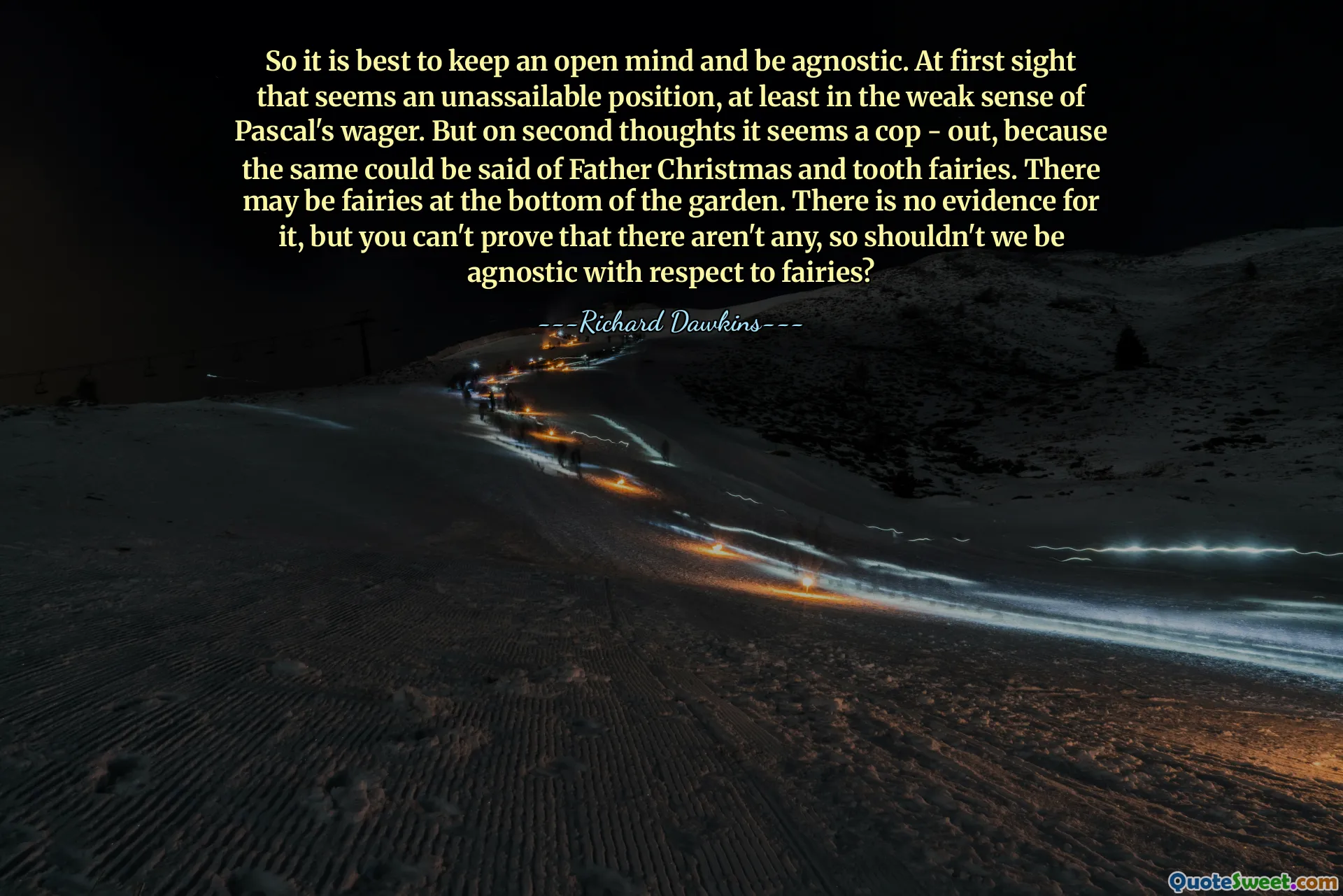
So it is best to keep an open mind and be agnostic. At first sight that seems an unassailable position, at least in the weak sense of Pascal's wager. But on second thoughts it seems a cop - out, because the same could be said of Father Christmas and tooth fairies. There may be fairies at the bottom of the garden. There is no evidence for it, but you can't prove that there aren't any, so shouldn't we be agnostic with respect to fairies?
This quote by Richard Dawkins highlights a compelling critique of agnosticism when applied indiscriminately. On the surface, being agnostic — keeping an open mind and withholding judgment on claims where evidence is lacking — seems rational and modest. It echoes Pascal's wager in its 'weak' form: choosing to neither fully believe nor fully deny in the absence of certainty. However, Dawkins challenges this stance by pointing out its logical extremities. The agnostic stance could be extended absurdly to mythical beings like Father Christmas, tooth fairies, or fictional fairies in the garden, all of which lack empirical evidence. Dawkins argues that simply because we cannot disprove the existence of these entities does not justify suspending judgment indefinitely or treating these claims with equal weight. This line of reasoning raises important questions about the criteria we use for belief. It challenges us to differentiate between a genuinely open mind and a convenient evasion of doubt or critical thinking. The notion that all beliefs deserve agnosticism ignores the practical necessity of relying on evidence-based reasoning to guide our understanding of reality. Evidence, or the lack thereof, and the plausibility of claims, must inform when skepticism becomes healthy and when belief is reasonable. This reflection underscores the value of applying critical thinking rather than equal consideration to all claims, especially those for which evidence is fundamentally absent. Dawkins's perspective invites us not to cling to agnosticism as an absolute refuge but to appreciate that skepticism must be balanced with reason and evidence evaluation.










